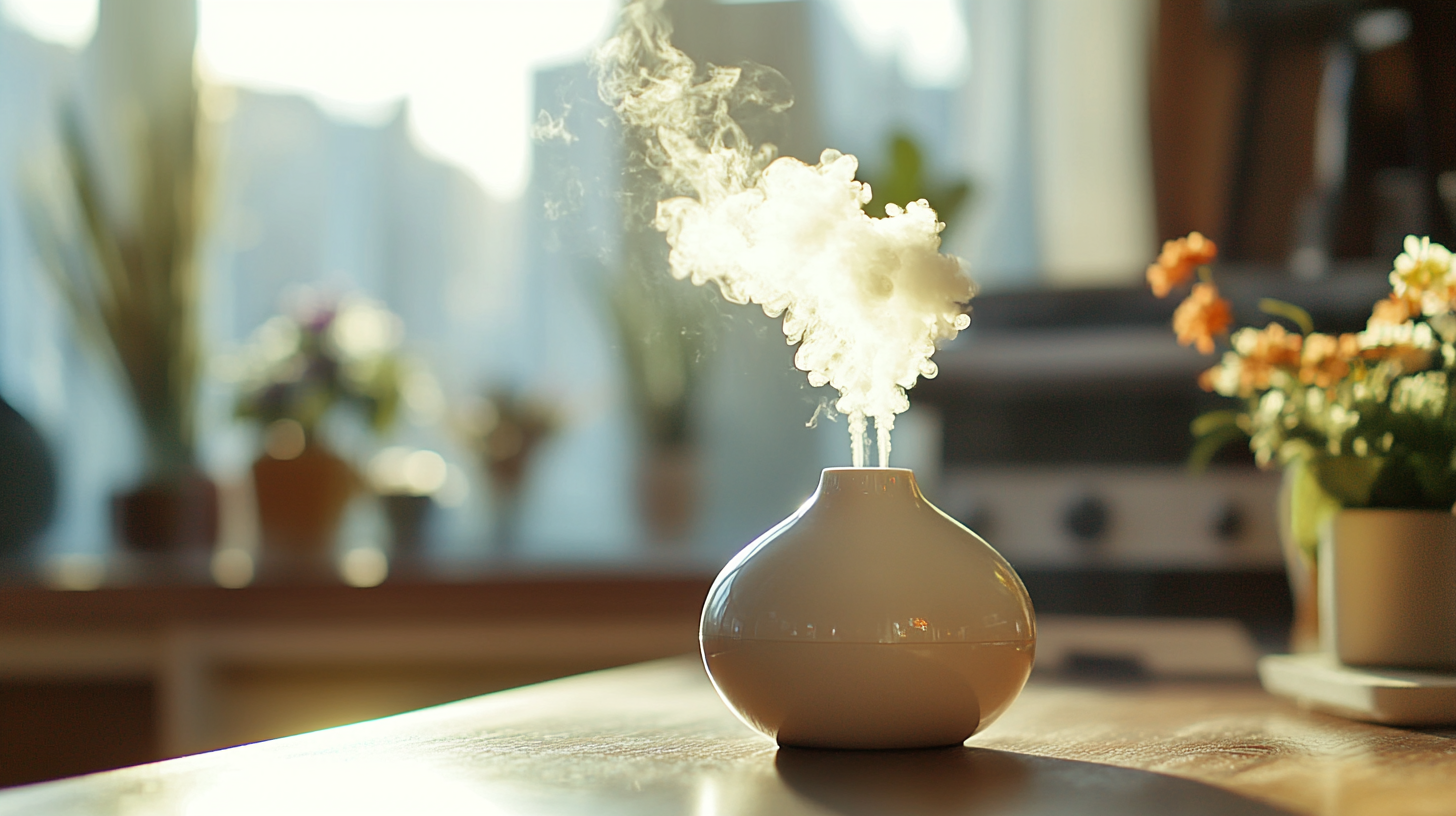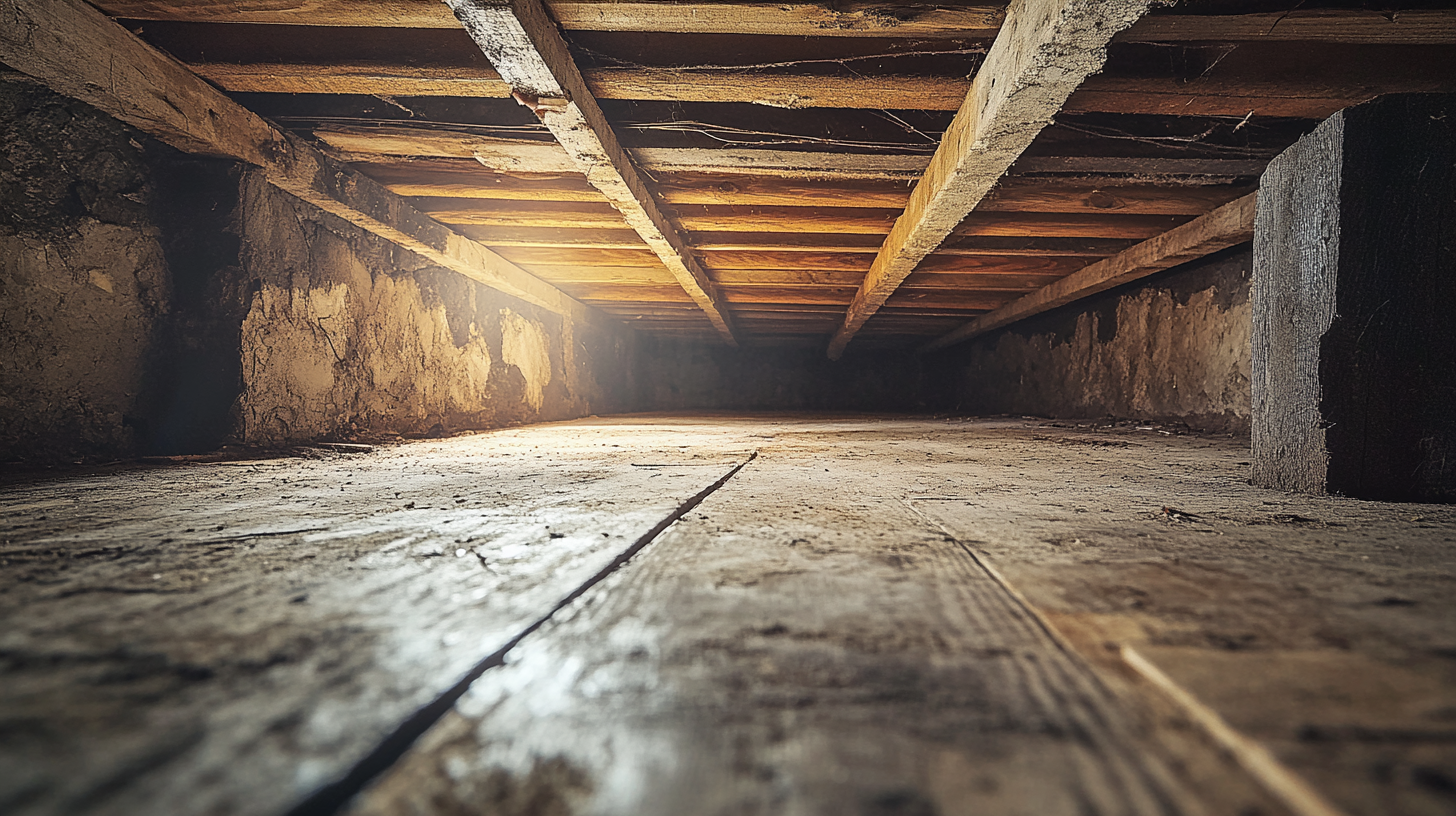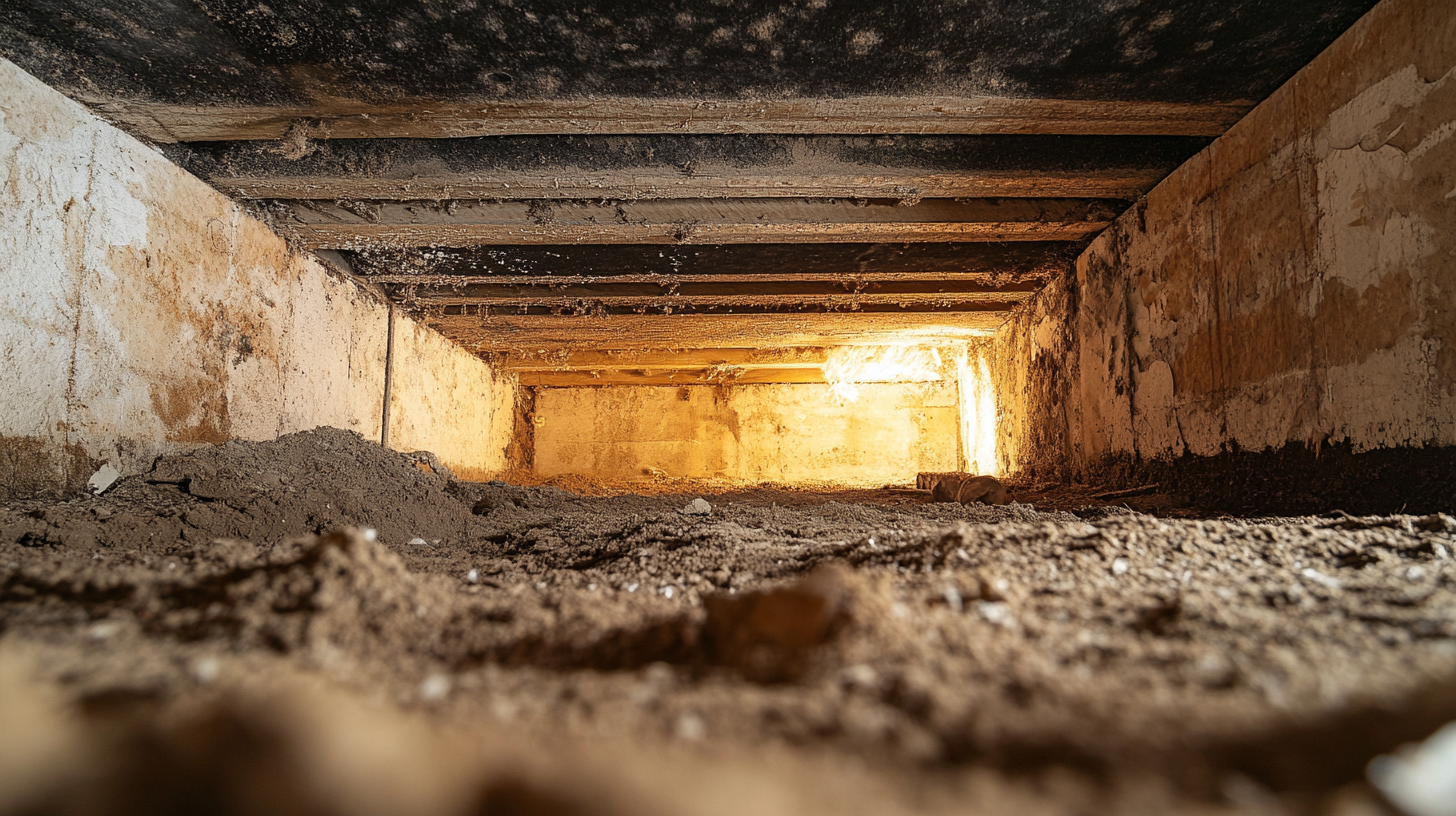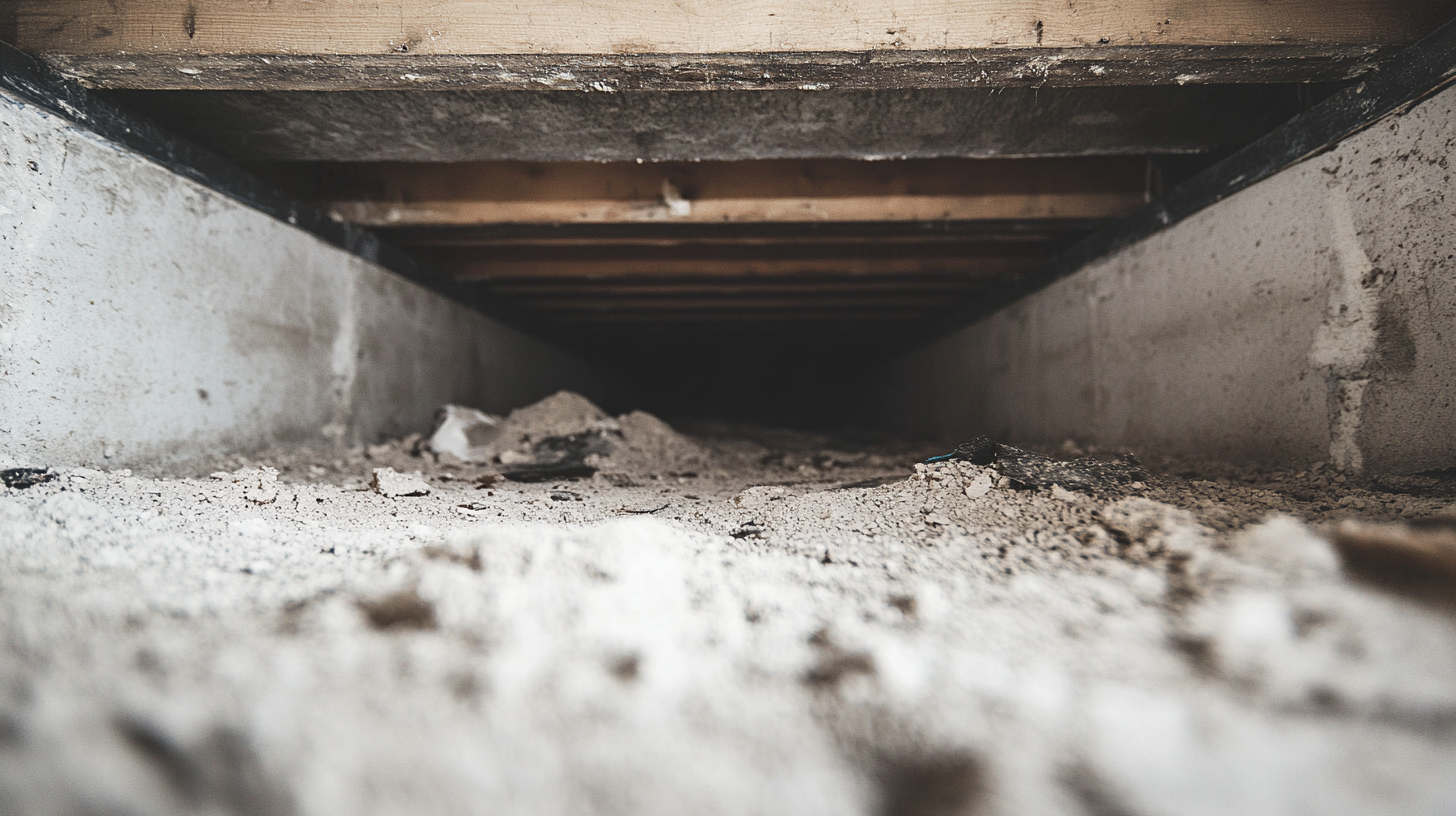How to Neutralize Musty Odors in Basements

Basements are often prone to musty odors due to a combination of moisture, poor ventilation, and high humidity levels. These conditions create an ideal environment for mold, mildew, and bacteria to thrive, which are the primary sources of musty smells. Since basements are usually located underground, they tend to trap moisture from the surrounding soil, especially in homes with poor drainage systems. The lack of proper airflow exacerbates the problem, as stagnant air allows odors to build up over time. Without sufficient ventilation or humidity control, these musty odors can become persistent and difficult to eliminate, making it essential to address the root causes for long-term freshness.
Common Causes of Musty Odors in Basements
Basements are notorious for developing musty odors, and the underlying causes often stem from environmental factors like moisture, poor airflow, and organic matter. Understanding the root causes of these smells is the first step in effectively eliminating them. Below are some of the most common culprits behind musty odors in basements.
Excess Moisture and Humidity
One of the primary causes of musty odors in basements is excess moisture combined with high humidity levels. Basements tend to be cooler, more enclosed spaces where moisture can easily accumulate, creating an ideal environment for mold and mildew to grow.
- Leaks, condensation, and water intrusion from the foundation or walls can introduce unwanted moisture, which seeps into porous materials and leads to persistent dampness. Whether due to poor drainage, cracks in the foundation, or condensation on pipes and windows, this moisture buildup fosters the growth of odor-causing mold and mildew.
Poor Ventilation
Basements often suffer from poor ventilation, which further exacerbates the issue of trapped moisture and odors. When there’s limited airflow, stale air gets trapped, allowing musty smells to become more pronounced.
- Many basements are closed off from the rest of the house and lack sufficient ventilation systems, making it difficult to properly circulate fresh air and expel stale, odor-laden air. This stagnant environment allows moisture to linger, worsening the musty odor over time.
Mold and Mildew Growth
Damp environments in basements are a breeding ground for mold and mildew, which thrive on moisture-rich surfaces like walls, ceilings, and floors. These fungi are not only unsightly but also release spores and volatile organic compounds (VOCs) that produce a characteristic musty smell.
- Mold and mildew growth is particularly common in areas with leaks, condensation, or high humidity. Without proper control, these fungi can spread, leading to a pervasive odor that can be difficult to remove without addressing the moisture issue.
Organic Debris and Dust
Basements often store organic materials such as cardboard, wood, and paper, which can absorb moisture from the air. Over time, these materials can develop musty smells, especially if they become damp. Additionally, accumulated dust, dirt, and debris can trap moisture, contributing to unpleasant odors.
- As organic debris breaks down, it can further promote the growth of mold and mildew, intensifying the musty smell. Keeping these materials dry and ensuring proper storage can help mitigate odor issues caused by organic matter.
By addressing these common causes, you can take steps to reduce moisture and humidity, improve ventilation, and eliminate the sources of musty odors in your basement.
Steps to Neutralize Musty Odors in Basements
Musty odors in basements can be persistent, but by taking a methodical approach, you can eliminate the root causes of the smell and restore freshness. Below are the key steps to neutralize musty odors in your basement.
Step 1 – Identify and Remove Sources of Moisture
The first step to tackling musty odors is to address the underlying cause: moisture. Excess humidity and water buildup create the perfect environment for mold and mildew to thrive, leading to musty smells.
- Inspect the basement for leaks or water intrusion: Look for damp spots on walls, ceilings, or floors, as these are signs of water seepage or condensation. Also, check for standing water or pooling in corners, which can lead to prolonged moisture issues.
- Repair visible leaks and seal cracks: Fix any visible leaks from pipes, windows, or walls, and seal cracks in the foundation to prevent further water intrusion. It's essential to keep water from entering the basement in the first place.
- Use a dehumidifier: To reduce humidity levels, run a dehumidifier and aim to keep the basement's humidity between 30-50%, which is ideal for preventing mold and mildew growth. This also helps dry out any residual moisture.
Step 2 – Clean and Disinfect Affected Areas
Once moisture is under control, it's time to thoroughly clean and disinfect the affected areas. Mold and mildew are common culprits behind musty odors, and they need to be removed to prevent further growth.
- Clean mold and mildew: Use a solution of water and vinegar or a specialized mold cleaner to scrub down walls, floors, and surfaces where mold and mildew are present. Make sure to clean all visible mold spots to eliminate the source of the odor.
- Use protective gear: When dealing with mold, wear gloves, a mask, and goggles to avoid exposure to harmful spores.
- Discard mold-affected items: Items like cardboard boxes, old fabrics, or furniture that have been affected by mold and cannot be salvaged should be discarded to prevent mold from spreading.
Step 3 – Improve Ventilation and Air Circulation
Improving airflow is key to reducing moisture buildup and removing stale air that contributes to musty odors. Proper ventilation will help prevent future odor issues by keeping the basement dry.
- Open windows or install an exhaust fan: Whenever possible, open windows to let fresh air circulate. If your basement lacks windows, consider installing an exhaust fan to help expel damp, stale air.
- Install a basement ventilation system: For consistent air circulation, a basement ventilation system can be a worthwhile investment. It will ensure fresh air is regularly brought into the space, reducing the chances of moisture buildup.
- Run fans: Use fans to keep air moving and help dry out any damp spots in the basement. This will aid in reducing the humidity and speeding up the drying process after cleaning.
Step 4 – Apply Odor Neutralizers
To further neutralize musty smells, you can use various odor-absorbing and neutralizing products that will help eliminate lingering odors.
- Baking Soda: Place bowls of baking soda around the basement to absorb both moisture and odors. Baking soda is a natural deodorizer and works effectively in closed spaces.
- Activated Charcoal: Activated charcoal is another excellent option for trapping moisture and absorbing odor-causing particles. Place containers of charcoal in various spots around the basement for effective odor control.
- Vinegar: Spray a vinegar and water solution onto surfaces, or use vinegar as a cleaner. Vinegar naturally neutralizes odors and helps kill bacteria and mold spores that cause musty smells.
- Commercial Odor Absorbers: For persistent odors, use odor-absorbing gels or deodorizers specifically designed for basements. These products are formulated to tackle the specific issues that arise in damp, enclosed environments.
By following these steps and addressing both the moisture issues and the odors themselves, you can effectively eliminate musty smells and keep your basement fresh and dry in the long term.
Preventing Musty Odors from Returning
Once you've eliminated musty odors from your basement, it's essential to take preventative measures to ensure they don't come back. By controlling moisture, improving drainage, and maintaining a clean environment, you can keep your basement odor-free. Here are the key steps to prevent musty odors from returning.
Step 1 – Maintain Low Humidity Levels
Humidity is the main cause of musty odors, so keeping humidity levels low is critical for long-term prevention.
- Use a dehumidifier: To continuously monitor and control moisture in the air, run a dehumidifier in the basement. Keep humidity levels between 30-50%, which is ideal for preventing mold and mildew growth.
- Empty the dehumidifier regularly: Ensure the dehumidifier functions efficiently by emptying the water tank frequently. For convenience, consider connecting the dehumidifier to a drainage system for automatic operation, reducing the need for manual emptying.
Step 2 – Seal the Basement
Sealing the basement will help block external moisture from entering, which is a common cause of musty odors.
- Install a vapor barrier: Apply a vapor barrier to the walls and floors of the basement to prevent moisture from seeping in from outside. Vapor barriers act as a protective layer, reducing the amount of water vapor that can infiltrate the space.
- Seal cracks in the foundation: Inspect the foundation, walls, and floors for any cracks, as these can be entry points for water. Use sealants to block any visible cracks and prevent water intrusion, keeping the basement dry.
Step 3 – Improve Drainage
Proper drainage around the exterior of your home is essential for keeping water away from the foundation, reducing the likelihood of water intrusion into the basement.
- Ensure gutters and downspouts are working properly: Make sure your gutters and downspouts are clean and directing water away from the foundation. This helps prevent water from pooling near the basement walls, which can lead to moisture buildup.
- Install a French drain or sump pump: If you live in an area prone to heavy rain or groundwater issues, consider installing a French drain or sump pump. These systems help manage water around the foundation and reduce the risk of basement flooding, keeping your space dry and odor-free.
Step 4 – Regular Cleaning and Maintenance
Maintaining a clean and well-ventilated basement is essential to prevent the buildup of dust, dirt, and organic debris that can lead to future odors.
- Clean the basement regularly: Dust, dirt, and organic debris can absorb moisture and lead to musty odors over time. Regularly clean floors, walls, and stored items to prevent the accumulation of odor-causing materials.
- Replace air filters in HVAC systems: Ensure that your HVAC system is functioning optimally by replacing air filters regularly. Clean air filters improve indoor air quality and reduce the chances of stagnant, musty air in the basement.
- Store items in plastic bins: Instead of cardboard boxes, which easily absorb moisture, store items in plastic bins to prevent mold growth and moisture retention. This simple step can significantly reduce the risk of future odors caused by damp materials.
By following these preventive measures, you can maintain a dry, clean, and odor-free basement, ensuring that musty smells don’t return.
Natural Solutions for Neutralizing Musty Odors
Using natural solutions is an effective and eco-friendly way to tackle musty odors in your basement. These methods help neutralize smells without the use of harsh chemicals and can be used regularly to maintain a fresh, clean environment. Below are some of the most effective natural solutions for eliminating musty odors.
Baking Soda
Baking soda is a well-known and highly effective odor absorber, making it an excellent choice for neutralizing musty smells in basements.
- Place open boxes or bowls of baking soda around the basement, especially in areas where odors are strongest. Baking soda absorbs musty odors over time, improving air quality.
- Sprinkle baking soda on carpets or fabric-covered furniture to eliminate odors embedded in fibers. Let the baking soda sit for a few hours, then vacuum it up to remove the absorbed smells. This method is particularly effective for fabric-based surfaces prone to trapping moisture and odors.
Activated Charcoal
Activated charcoal is another natural odor absorber that works exceptionally well in damp, musty environments. It not only neutralizes odors but also helps absorb excess moisture in the air, making it ideal for basements.
- Use activated charcoal bags or containers in problem areas like corners, storage rooms, or near damp walls. Charcoal absorbs musty smells without releasing any chemicals or fragrances into the air.
- Replace charcoal every few months to ensure it continues to absorb odors effectively. Over time, charcoal becomes saturated and needs to be refreshed for optimal performance.
White Vinegar
White vinegar is a powerful natural deodorizer that can effectively eliminate musty odors and combat mold and mildew in the basement.
- Spray diluted white vinegar onto surfaces such as walls, floors, or shelves to neutralize musty odors. Vinegar works by breaking down the organic compounds causing the smell without simply masking it.
- Leave bowls of vinegar in the basement to absorb odors from the air. Vinegar's natural acidity helps break down mold and mildew, which are often the source of persistent musty smells.
Essential Oils
Essential oils offer a pleasant and natural way to freshen the air while also neutralizing odors. They are a great addition to any odor-neutralizing routine, adding both fragrance and antibacterial properties.
- Use a diffuser with essential oils like lavender, eucalyptus, or tea tree to freshen the air and combat musty smells. These oils have natural antibacterial properties, which can help inhibit the growth of mold and mildew.
- Combine essential oils with water and vinegar to create an all-natural cleaning solution. This mixture not only cleans surfaces but also eliminates odors, leaving your basement smelling fresh and pleasant.
By incorporating these natural solutions into your cleaning routine, you can effectively neutralize musty odors in your basement while maintaining a healthy, chemical-free environment.
Commercial Odor Neutralizers for Basements
For persistent and difficult-to-manage musty odors in basements, commercial odor neutralizers can provide a powerful and long-lasting solution. These products are specifically designed to target and eliminate odors at their source, helping to maintain a fresh environment in areas prone to moisture and poor ventilation. Below are some of the most effective commercial odor neutralizers for basements.
Odor Absorbing Gels
Odor-absorbing gels are an excellent choice for continuous odor control in basements. These gels work by actively absorbing and neutralizing musty smells rather than simply masking them.
- Place odor-absorbing gels in corners or near problem areas where odors are most concentrated, such as near damp walls or storage areas. The gels release neutralizing agents that gradually eliminate odors from the surrounding air.
- These gels are ideal for long-term use, as they can last for several weeks to months before needing to be replaced, making them a low-maintenance solution for maintaining fresh air in your basement.
Deodorizing Sprays
Deodorizing sprays offer a quick and convenient way to eliminate musty odors in specific areas of the basement. Unlike traditional air fresheners that mask smells, these sprays are formulated to break down the compounds responsible for odors.
- Use commercial deodorizing sprays designed specifically for musty odors to tackle problem spots like walls, floors, or furniture. These sprays are particularly useful for spot-treating areas where the odor is most intense.
- For the best results, look for enzyme-based sprays that break down the organic materials causing the odor, such as mold, mildew, or dust. Enzyme-based sprays work by neutralizing odors at the source, ensuring long-lasting freshness.
Air Purifiers with HEPA Filters
Air purifiers equipped with HEPA filters are a highly effective tool for improving the air quality in basements and eliminating musty smells. HEPA filters capture small airborne particles, including mold spores, dust, and allergens, that contribute to odors.
- Invest in air purifiers with HEPA filters to remove airborne contaminants that are often the root cause of musty smells. These purifiers are especially effective in closed spaces like basements, where ventilation is limited and airborne particles can accumulate.
- In addition to odor control, air purifiers also help improve air circulation and overall indoor air quality, creating a cleaner and healthier environment in the basement.
By incorporating commercial odor neutralizers like odor-absorbing gels, enzyme-based deodorizing sprays, and air purifiers with HEPA filters, you can effectively eliminate musty odors in your basement and keep the space fresh over the long term.
FAQs
Contact Fast Response Cleaning & Restoration Today!
Fast Response Cleaning & Restoration will do everything we can to ensure your experience with us is excellent.
Request A FREE Estimate
Request A FREE Estimate Form
CHECKOUT RECENT POST



Have an Emergency? We're Here to Help!
When it comes to disaster cleanup, we are a seasoned veteran in the industry and have helped hundreds of property owners just like you.
Our disaster recovery teams are available 24-7 to quickly clean up and repair disasters of all types.
